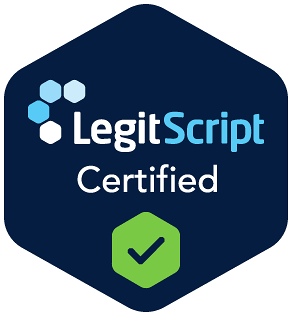Introduction
Court advocacy programs are essential tools in helping individuals with addiction navigate the legal system and access the treatment they need. These programs provide guidance, emotional support, and a structured path to recovery, acting as a bridge between the courtroom and rehabilitation resources.
Trained court advocates work directly with individuals facing substance-related legal issues, helping them understand court mandates, fulfill treatment obligations, and stay on track in their recovery journey. Rather than facing punishment alone, individuals receive the support and structure they need to begin rebuilding their lives.
Court advocacy is a powerful contributor to:
- Reducing incarceration rates
- Promoting long-term sobriety
- Increasing treatment completion rates
- Encouraging personal accountability
Across the country, these programs are proving to be life-changing—helping people avoid jail, enter treatment programs, and sustain recovery.
Understanding Court Advocacy Programs in Addiction Recovery
Court advocacy programs tailored for addiction recovery are often part of diversion or alternative sentencing programs. These initiatives aim to replace incarceration with structured treatment, offering individuals a second chance through recovery instead of punishment.
Key functions include:
- Guiding clients through court-ordered treatment requirements
- Communicating with judges, probation officers, and treatment providers
- Supporting clients during court appearances
- Ensuring compliance with recovery milestones and legal obligations
- Documenting progress for legal review
These programs depend on close collaboration between treatment centers, legal teams, and recovery professionals to support clients holistically.
The Role of Recovery Advocates in Court
Recovery advocates are professionals trained to assist individuals in addiction recovery while navigating legal challenges. They serve as a consistent point of contact, providing encouragement, legal clarity, and access to recovery resources.
Typical responsibilities include:
- Helping clients interpret legal documents
- Offering transportation to court or treatment
- Liaising with judges and legal counsel
- Ensuring clients follow treatment plans and court requirements
- Advocating for continued care over incarceration
The presence of a recovery advocate can mean the difference between relapse and successful treatment. Their role is especially critical for individuals overwhelmed by legal consequences but committed to change.
Court-Ordered Rehabilitation and Its Impact
When addiction leads to legal trouble, court-ordered rehab provides a structured, potentially life-saving alternative to jail. These programs often include:
- Initial substance use assessments
- Admission into accredited treatment centers
- Regular progress reporting to the court
- Drug testing and monitoring
- Appearances before a judge to demonstrate compliance
Benefits of court-mandated treatment:
- Accountability structures increase the likelihood of sobriety
- Access to professional care, therapy, and support groups
- Reduced risk of re-offending
- Improved long-term recovery outcomes
With proper advocacy and treatment, individuals can transform legal consequences into turning points for healing.
On-Staff Court Liaisons: Bridging Legal and Recovery Needs
Many recovery centers employ on-staff court liaisons—professionals who help coordinate communication between treatment providers and the judicial system.
SoCal Detox proudly offers an on-staff court liaison to serve as a dedicated connection between our treatment programs and the legal system.
Court liaisons:
- Represent the treatment program in legal settings
- Submit progress updates and treatment compliance records
- Ensure clients understand and fulfill court requirements
- Advocate for continued treatment when appropriate
Their involvement reduces client anxiety, ensures accurate information reaches the court, and promotes a treatment-first approach to legal issues.
Challenges Facing Court Advocacy Programs for Addiction
These programs face ongoing challenges such as:
- Limited funding and staffing
- High caseloads
- Gaps between legal and treatment systems
- Stigma surrounding addiction
Despite these obstacles, many programs innovate by:
- Partnering with local nonprofits
- Hosting virtual advocacy sessions
- Leveraging community volunteers
- Applying for state and federal grants
These solutions help maintain accessibility to advocacy and treatment for those who need it most.
Success Stories and Positive Outcomes
Court advocacy has led to powerful recovery outcomes, including:
- Higher rates of treatment completion
- Lower recidivism rates
- Reunification with families
- Employment and housing stability post-treatment
By humanizing the legal process and centering recovery, court advocacy empowers individuals to take control of their lives.
Conclusion
Court advocacy programs for addiction recovery are more than just legal assistance—they are lifelines for individuals ready to change. By connecting the courtroom with the treatment center, they create a pathway to sobriety, stability, and hope.
SoCal Detox proudly offers a comprehensive Court Advocacy Program designed to support individuals facing legal challenges related to substance use. Our experienced team works closely with the legal system to ensure clients receive the care, guidance, and representation they need to achieve long-term recovery.
Take the First Step Toward Recovery Today
If you or someone you love is navigating the legal system while battling addiction, SoCal Detox is here to help. Contact us to learn more about our Court Advocacy Program and discover how we can support your journey toward healing.
You don’t have to face this alone—let SoCal Detox be your advocate for recovery.






